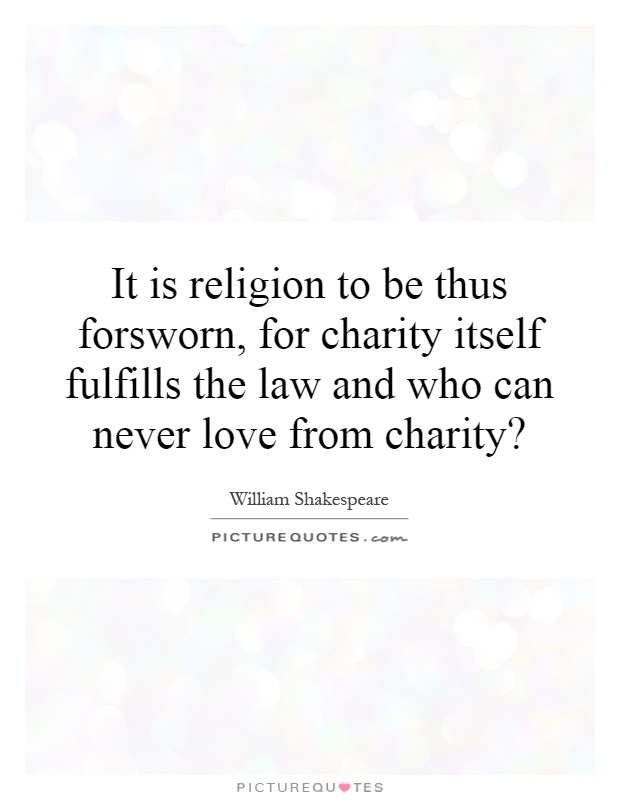It is religion to be thus forsworn, for charity itself fulfills the law and who can never love from charity?

It is religion to be thus forsworn, for charity itself fulfills the law and who can never love from charity?
The quote "It is religion to be thus forsworn, for charity itself fulfills the law and who can never love from charity?" is a powerful statement made by William Shakespeare in his play "Measure for Measure". In this play, Shakespeare explores themes of justice, mercy, and the complexities of human nature.The quote speaks to the idea that true religion is not about following strict rules and regulations, but about embodying the principles of charity and love. In the context of the play, the character Angelo is a strict enforcer of the law, but lacks compassion and mercy. He is willing to condemn a young woman, Isabella, to death for breaking the law, even though she is pleading for her life out of love for her brother.
Shakespeare is suggesting that true religion is not about blindly following rules, but about acting with compassion and love towards others. Charity, in this sense, is not just about giving to the poor or helping those in need, but about embodying a spirit of kindness and forgiveness in all aspects of life.
The quote also raises questions about the nature of love and how it relates to religion. Can one truly love others without acting out of charity and compassion? Shakespeare seems to be suggesting that love without charity is hollow and meaningless. True love, in his view, is rooted in a deep sense of empathy and understanding for others.
Overall, this quote from "Measure for Measure" challenges the audience to think about the true meaning of religion and love. It encourages us to look beyond the surface of rules and regulations and to strive for a deeper connection with our fellow human beings. Shakespeare's words remind us that true religion is not about judgment and condemnation, but about kindness, mercy, and love.












 Friendship Quotes
Friendship Quotes Love Quotes
Love Quotes Life Quotes
Life Quotes Funny Quotes
Funny Quotes Motivational Quotes
Motivational Quotes Inspirational Quotes
Inspirational Quotes